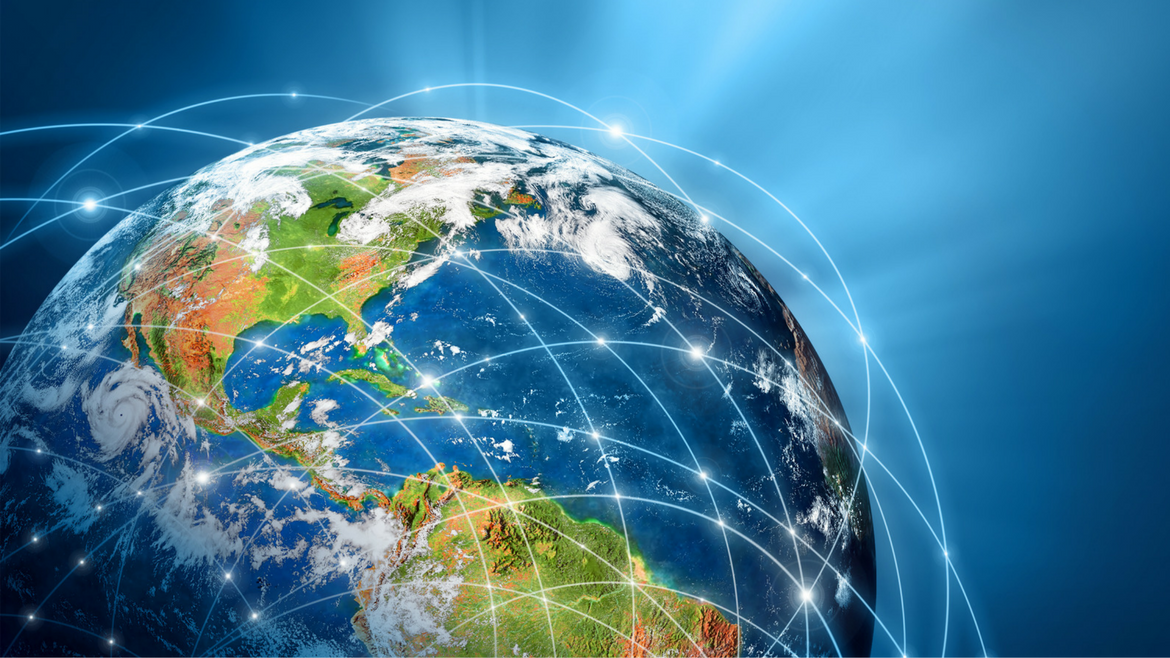Globalisation is a process in which the world appears to be converging economically due to the greater interdependence that the movements of capital, goods, services and people across borders create between the world economies. It is a way in which geographic, cultural, economic and institutional distance between countries seems to shrink and is characterised by a systemic interconnectedness where what happens in one country, influences all the others in the system.
However, in light of current events such as Brexit and the election of the populist Republican candidate Donald Trump in the US presidential election, business leaders need to examine the factors underpinning globalisation and if it is unravelling. This period of uncertainty strengthens the argument that the world has not recovered from the impact of the economic and financial crisis and its imbalances.
History on repeat
Multiple parallels can be drawn with the current circumstances and previous episodes of de-globalisation such as the period in the wake of World War I: rising geopolitical tensions, financial imbalances, rising inequalities, ecological concerns and growing populism. History has shown globalisation is not linear and can reverse. The troubling feature of this is that the outcome is often correlated with wars and poverty.
By examining aggregated world data, we can conclude that globalisation seems, at best, to be on pause. Foreign direct investment (FDI) has not recovered from its pre-financial crisis levels and world trade, although still rising, is not growing as it did before 2008. A real concern is the rise of inequality in the West, and the rise of protectionist measures around the planet. From January to August 2016, G20 countries alone introduced more than 350 discriminatory measures against foreign interests versus 100 to liberalise trade. Regarding FDI, G20 countries have introduced more than ten times as many restricting measures against FDI flows as liberalising measures.
The problem with these measures is that they are harming growth, and low growth generally fuels a vicious cycle of further disenchantment among people. If the Comprehensive Economic and Trade Agreement (CETA), a trade agreement between Canada and the European Union, is be signed in, there is still be a long and hazardous way ahead to secure the long-term viability of this new commercial agreement. 38 national and regional parliaments of the EU will have to formally ratify it but with the French elections looming and populism on the rise in France, this is uncertain.
In vogue elsewhere
While the appetite for more globalisation seems to be unravelling in the West, in emerging markets and China it is growing.
The main problem in many western economies is the perception that globalisation has impoverished the middle classes whose jobs and income have been pushed downward by both migrants working for cheaper wages and multinationals offshoring many activities to lower cost countries. With the departure of the UK, EU’s second largest economy, from the EU and persistent imbalances with the euro, the political, financial and budgetary stability of the EU is at stake. There is now a real risk of the disintegration of the world’s largest trading block.
In emerging markets generally, and in China in particular, there are no real second thoughts about globalisation since hundreds of millions have emerged from poverty to middle class living standards since the 1990s. The Chinese are likely to push globalisation as far as they can go, for example by buying more and more assets in Europe and by dominating economies in Africa and Asia. In addition the country may play on the current economic weakness of the West and on the rivalry between Europe, the US and Russia. However, they are likely to face growing resistance to their buying-spree as the recent veto by Germany to a strategic acquisition shows. Germany justified the move on the grounds of national security and the lack of reciprocity to Western firms in China.
Tipping points
Globalisation could be at best on a pause but we may be soon reaching a point where it could unravel altogether. Potential tipping points, or black swans, include:
• The continuation of the refugee crisis in Europe combined with Islamist fears that accelerate crises of national identities.
• A debt hangover that may severely disrupt the Chinese economy, drive bankruptcies and a surge of unemployment around the world.
• Effects of persistent low interest rates and unbalances between supply and offer of money with the distorting effect of quantitative easing.
• The medium-run impact of robotics and artificial intelligence on employment.
• Unplanned climate change disasters.
Slower growth, major economic imbalances, the rise of China and the rising inequalities that free-trade entails could lead western voters to elect governments that will enforce radically protectionist agendas.
There were strong signals of growing economic and geopolitical rivalry in the period leading to World War I but it was only after 1931, over 20 years later, that things started to implode. If we take the 2008 financial crisis as the inflection point, it may still take a long time for issues to unravel. If globalisation does collapse there would be significant costs for businesses. In Part 2 we explore what businesses can start doing today to influence the evolution of globalisation.
The views and opinions expressed in this article are those of the authors and do not necessarily reflect the views of The Economist Intelligence Unit Limited (EIU) or any other member of The Economist Group. The Economist Group (including the EIU) cannot accept any responsibility or liability for reliance by any person on this article or any of the information, opinions or conclusions set out in the article.




